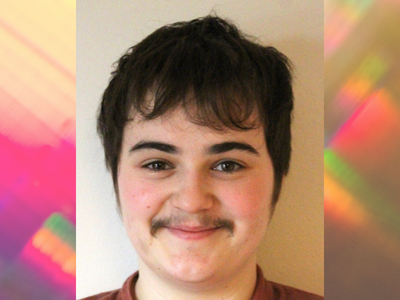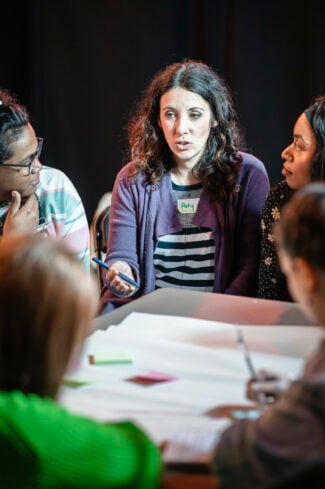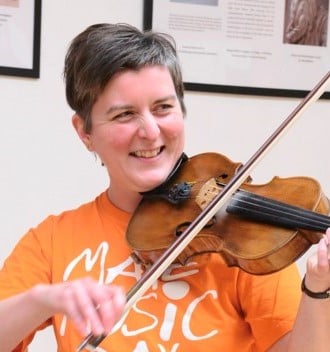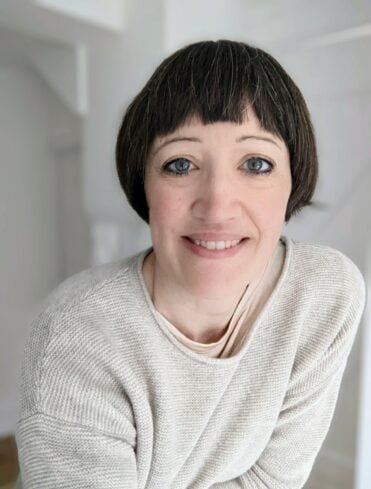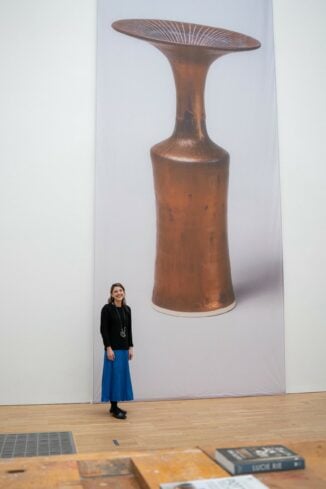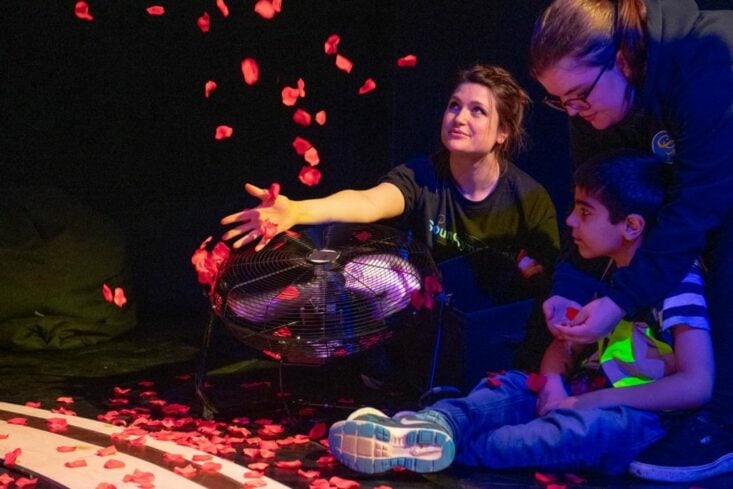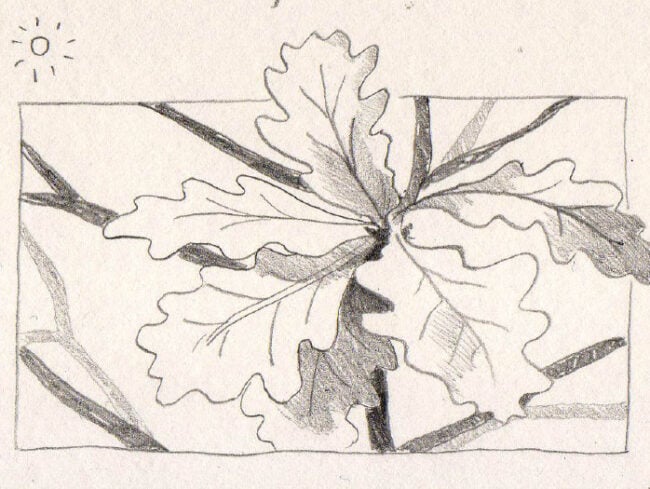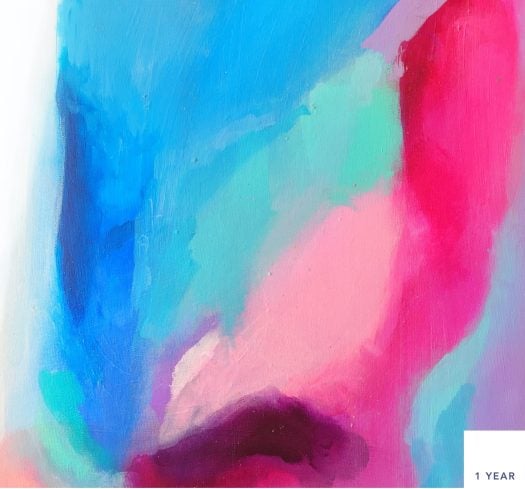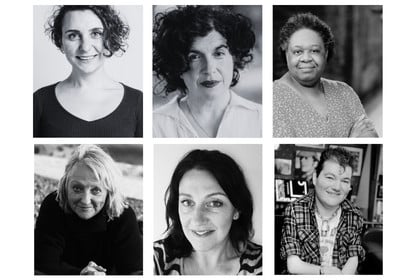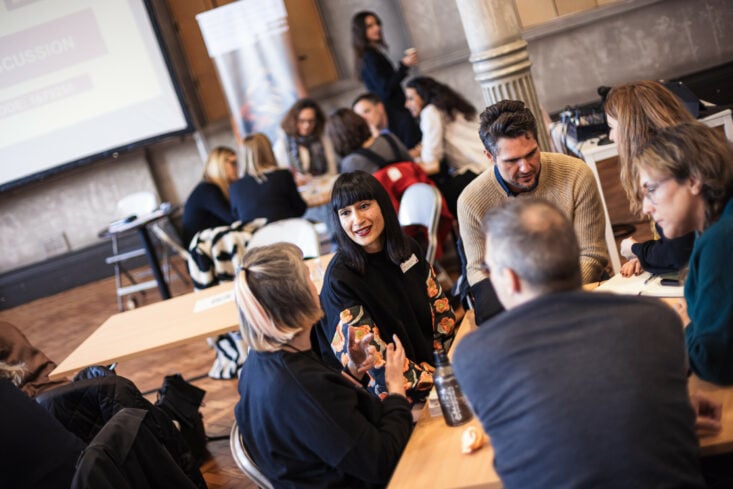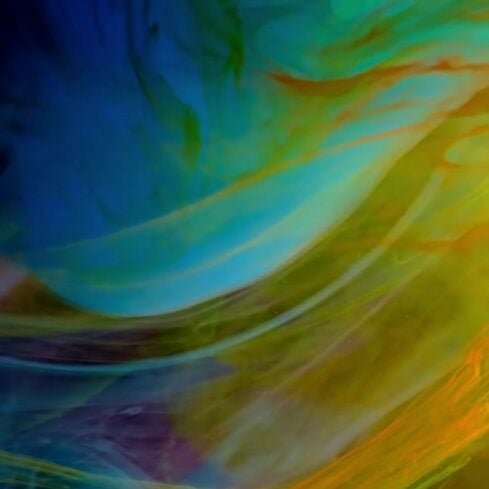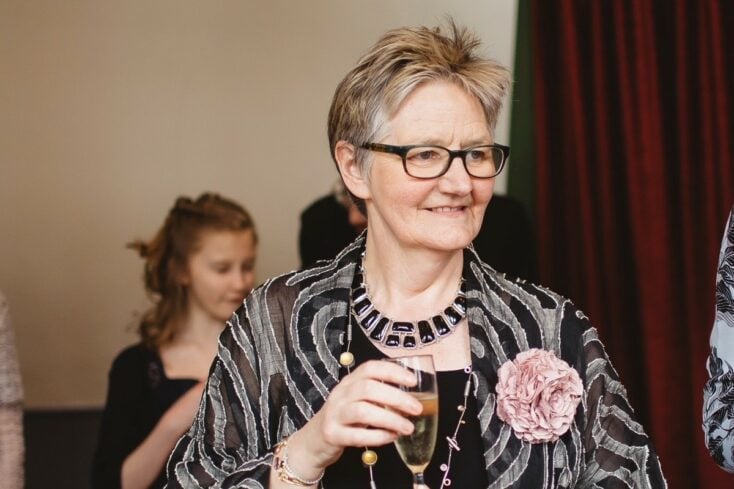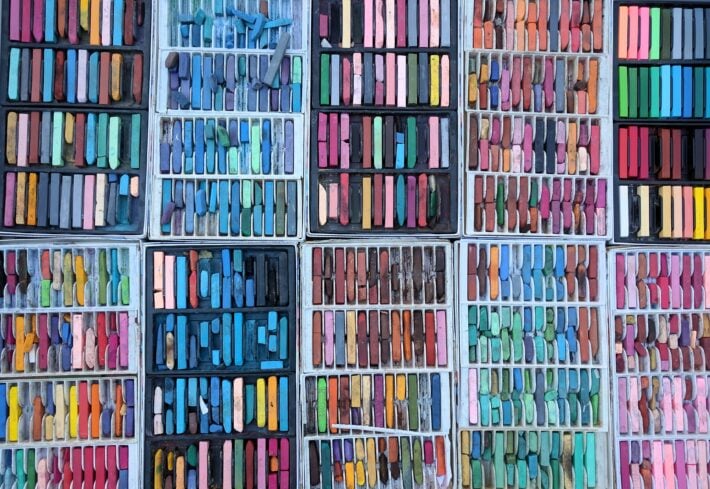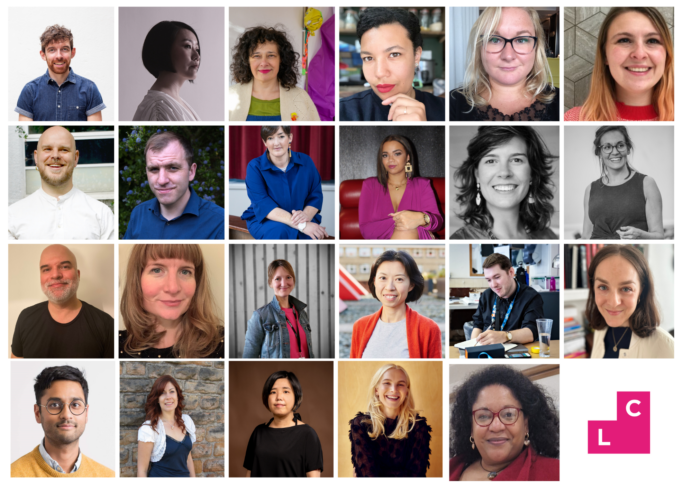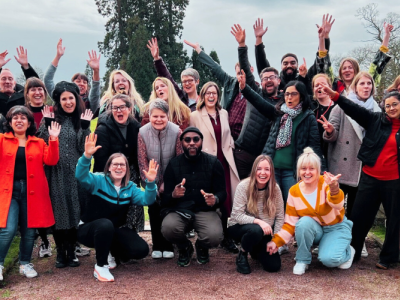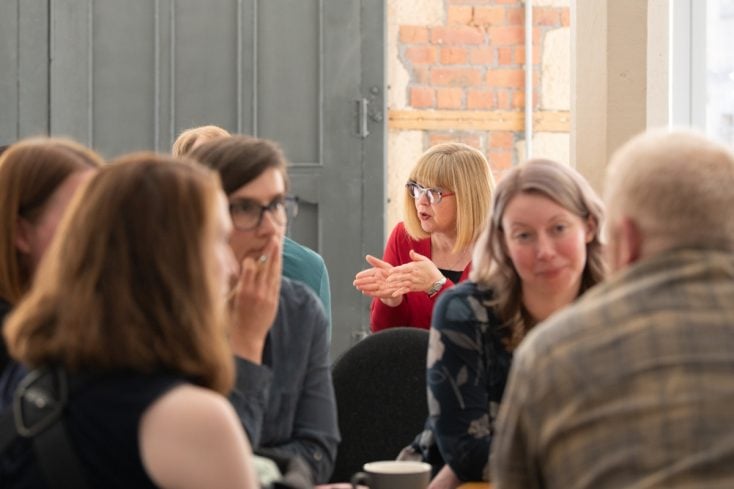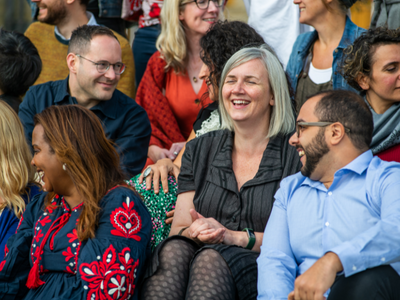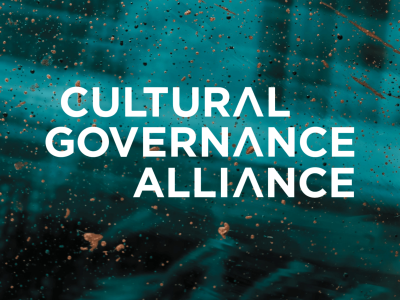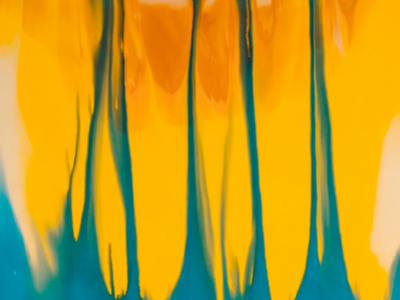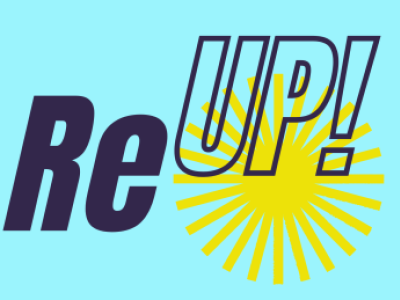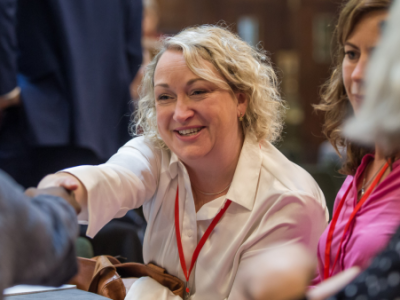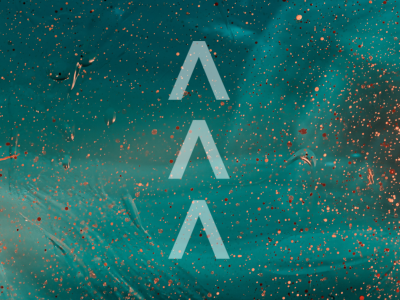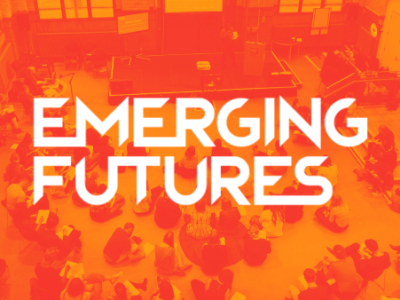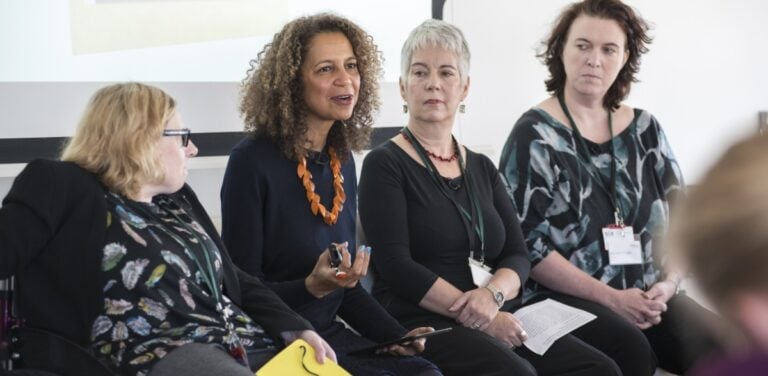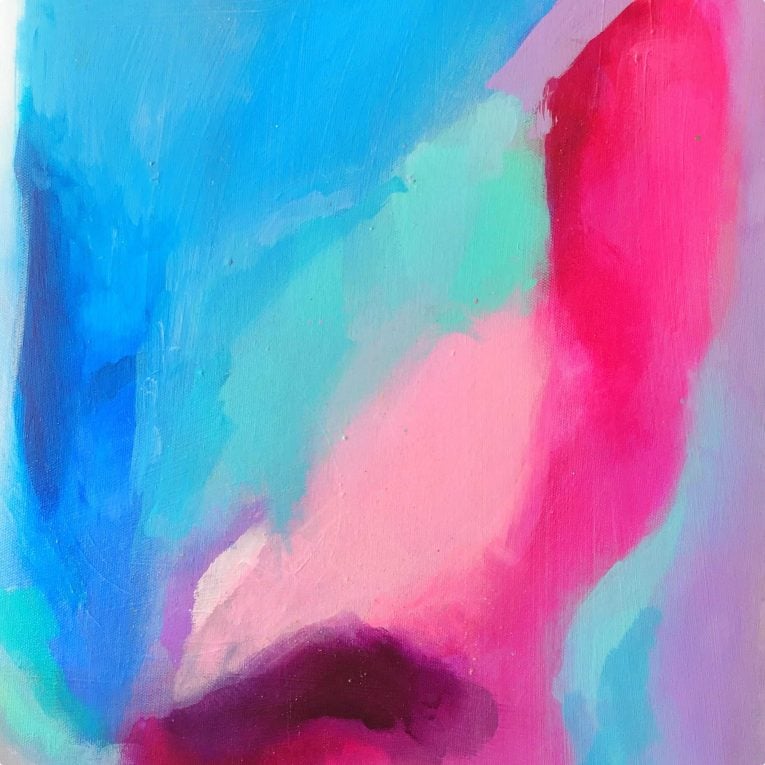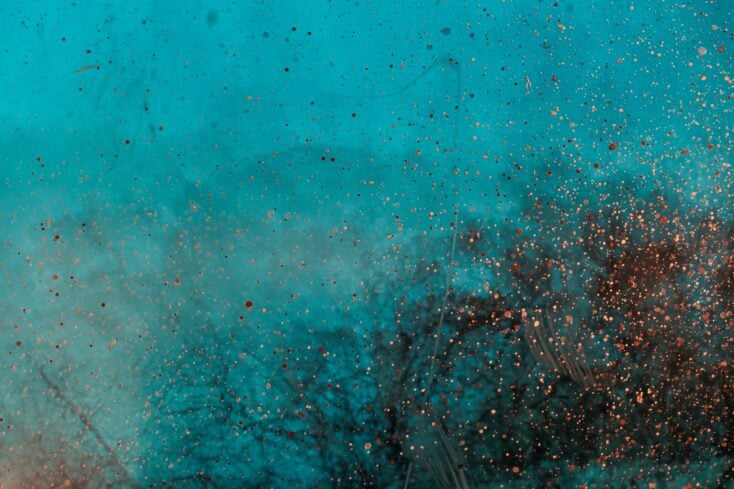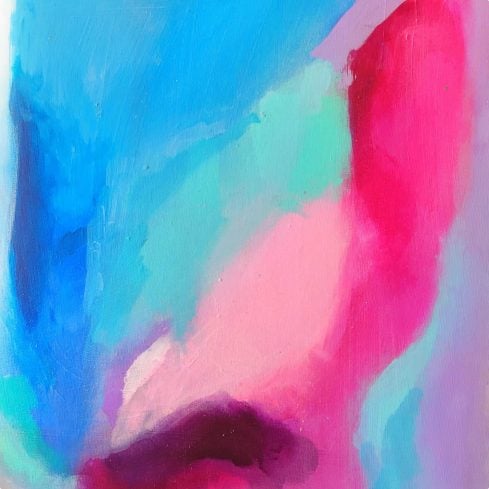Trepanation (or what my life became when I let the ghouls out of my brain)
Roma Havers, 2022 short course attendee, discusses the intersection between poetry and accessibility.
“Once I thought I knew the way of fields
I thought that I had seen the view’s only truth
I spread upon the tender world of moss
yielded my head to the ground
gave passage to any questing root
my mind an offering to pullulations of seed”
An extract from a longer poem by Jane Burn
Jane! What do you mean pullulations? I was so sure, burying my head into the ground with you, offering my mind until…pullulations. Of course, I am imagining a kind of pulling sensation, or a pulsation with a little more pull to it or a pollution that draws you closer in/ I go back, imagine I don’t quite know the meaning of other words, questing, tender… and I am looped back to the beginning of the poem. ‘Once I thought I knew’.
It’s easy when given the job title of Learning Manager to imagine that your key role will be managing other people’s learning, but most days I imagine myself as a manager of my own learning, gathering people together to look more closely with me at the pullulations of these questions we all ask ourselves.
What a silly word manager is – sometimes I imagine it as a synonym for the way people use the word ‘copers’ or ‘doers’, we’re managers, we get on, get things done. I think we need to get rid of the idea of ‘getting anything done’ especially in the arts, and rethink towards a presentness, a responsiveness, offering spaces of rest and pleasure to others in a way which is manageable (there it is again!) to us. There is an inherent ableism to making an identity out of the ability to cope, to keep going, to put up and manage. Is this really a point of pride or is it an internalisation of capitalism, a belief that our work is who we are? What does this mean for us when we want to co-curate and collaborate with the marginalised communities most affected by the ableism of capitalist working patterns, and the belief that doing things is what makes us good.
I don’t have the power to change my job title, but I can find new ways of thinking about its meaning, and how I articulate what it is I do to the people I am working with. During my time with Inclusive Cultures I was particularly inspired by Kim Simpson’s work on interpellation as a model of rethinking whether inclusion is what we really mean:
an interpellation perspective on something means being critical about the codes, rituals, behaviours, values and ideas that exist in your organisation, or project, or community. It’s not enough to include, we have to allow the context, the structure, the dynamic to be changed, for the interpellation we experience every second to enable us to thrive, not to be limited
Kim Simpson
I wonder how I can articulate my role to the communities I support – to work within and beyond the churned up mirage of power and responsibility. I am just one of infinite possible versions of a person in this role, isn’t that what planning for the future is? For me this dulls the question of ‘should it be me here – am I doing a good enough job?’ and asks more interesting questions like –
How would you like me to be doing this?
How would you like us to describe who we are together, in this space?
What do we want to learn from each other?
How will we define it – the pullulations, our interpullulations?
The pullulations of Manchester Poetry Library are immense, full of ghouls, and moss, and roots below very new sprouts, and a field of football boots, new books, researchers, students, writers, readers all with only a year to its opened doors.
Jane Burn is a neurodivergent poet, whose book Be Feared is published by Nine Arches Press, Jane says:
Neurodivergence is at the core of these poems which are both explorations in form and celebrations of my personal idiolect. The treatment of white space in poems such as Trepanation (or what my life became when I let the ghouls out of my brain) becomes a visual representation of neural pathways through my writing.
Jane Burn
I discovered Jane Burn while writing an access guide using learning from Kendal Poetry Festival where she performed her work in May this year, right at the beginning of my Inclusive Cultures journey. Her poetry inspired me to think differently about the project of poetry and access itself. Beyond the elitism that exists within many arts and literary organisations, those affiliated with poetry have been charged with a kind of inaccessibility that seems mostly to do with a kind of complexity. I want to challenge this – why do we always assume complexity is inaccessible, who does mainstream prioritise, what does it do to artists, to people, to label them too complex, what does it mean to be told your understanding of the world is inaccessible?
Poetry is mostly called inaccessible for its difficulty, for its lack of answers, for its formal strangeness, for its approach to language. I don’t begrudge anyone who finds poetry a challenge – but what a huge burden for any poem to face. I do ,however think it is possible that poetry as it is has a different mode of accessibility, and that it answers and asks difficult questions about access.
Inclusive Cultures as a course was full to the brim with metaphor, with deep interest in language, with big unanswerable questions, with emotional tactility, with making the invisible visible – it seemed to me that poetry’s commitment to staying in that place might offer something quite radical to inclusive cultures thinking. It’s no wonder so many are drawn to it when asking big questions about the world.
After Rachel Bagshaw’s Beanbag Manifesto, I found myself preoccupied with the questions ‘how do we make space to spread out in limited space?’ ‘How do we make space for radical comfort?’ It helped me to think through those questions the way I would a poem.
How do I make invisible spaces more visible to myself,
the unmarked page?
How do I make the most of every moment,
consciously and with great excitement?
Have I trusted my reader to make home for
themselves in the poem, am I sure what I thought
was an invitation looks inviting?
Trepanation
After Jane Burn
Once I thought I knew the word
pullulation a small circulation like –
what a word! – a zine recognising
itself in the pocket of a blubber
mouth who am I to say
what are the right words when we all
know ‘come in’ ‘you are welcome’
can never quite mean themselves
the way doing words never do
if we take the word poetry out, what do you
think of this knock knock.
Who gets to experience thinking-time?
Who gets to be an artist who knows the canon of their experience?
Who gets to trust that the basics of their community are seen and that they can go deeper?
When does your protest chant become a cliché?
When it comes to marginalised poets, too often we are dismissed for writing into stereotype, for always returning to the same issues, for writing from trauma, for being too sincere, too emotional, that our poetic voices are too closely interlinked with our identity.
Who gave us this?
Who decided that this was a question of skill and talent rather than who is afforded the time, space, agency and lack of agenda it takes to become a writer who can tunnel deep, when so often the work available to marginalised writers is commissioned work on the topic of ‘identity’ or ‘belonging’?
I think we need to reimagine where craft comes from, and re-evaluate why form matters. Because it does, because we want to hear about the deep tunnels of marginalised voices; because we want to see how innovation forms; because it is already happening and we are being limited; because you have given us a longer list of things we have to say before we can say something new. Because every single marginalised writer has been told ‘we do not understand you’ or ‘I can’t find the emotion of this piece’ or more cruelly – ‘that’s more like it’ when you copy something you’ve already seen.
Creativity and originality are being knocked out of us for the sake of responsibility for clarity which is already unfairly placed on marginalised creators.
Comprehensibility is a privilege, let’s make more pullulations.
Themes Alumni Journeys Inclusive Leadership Practice Qualities of Leadership
